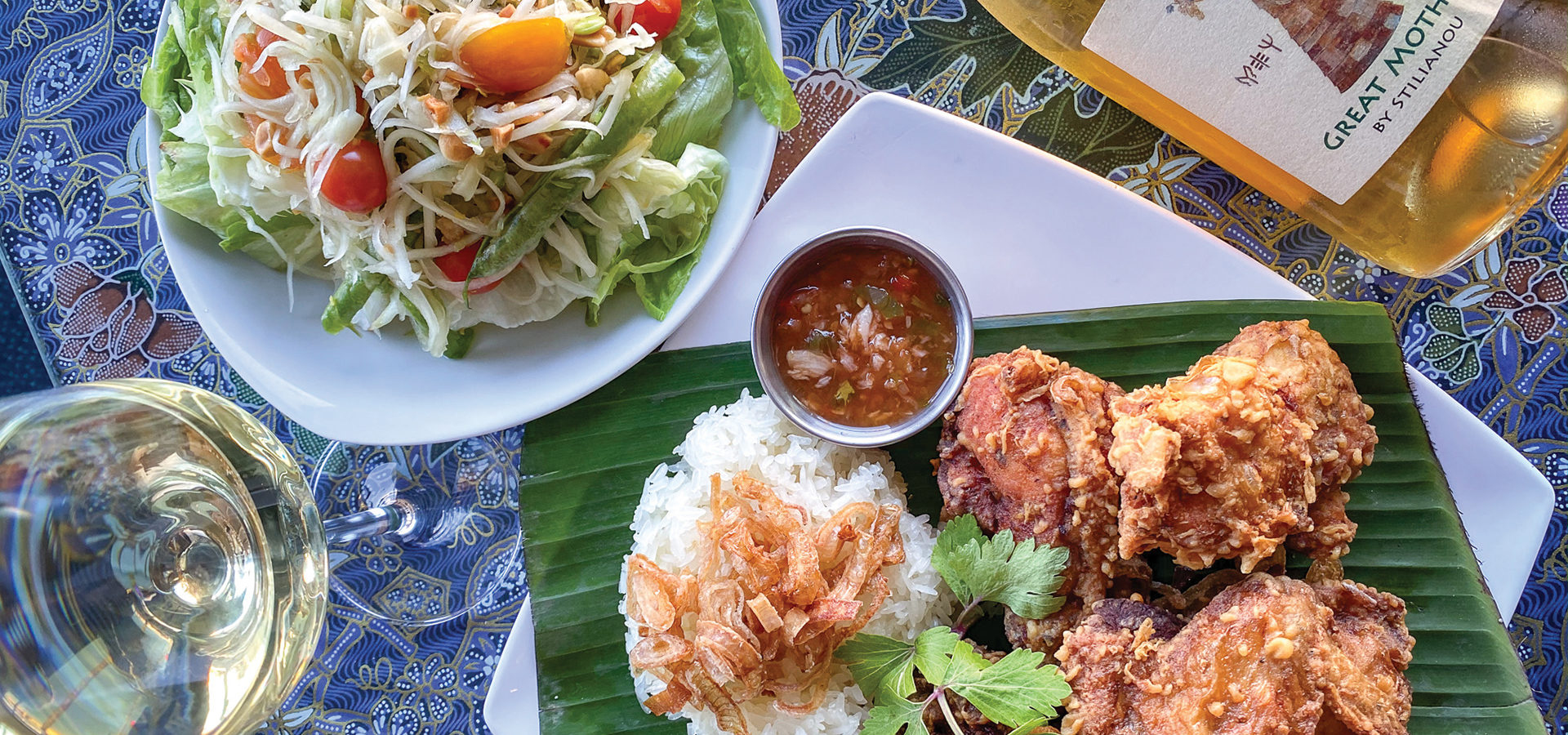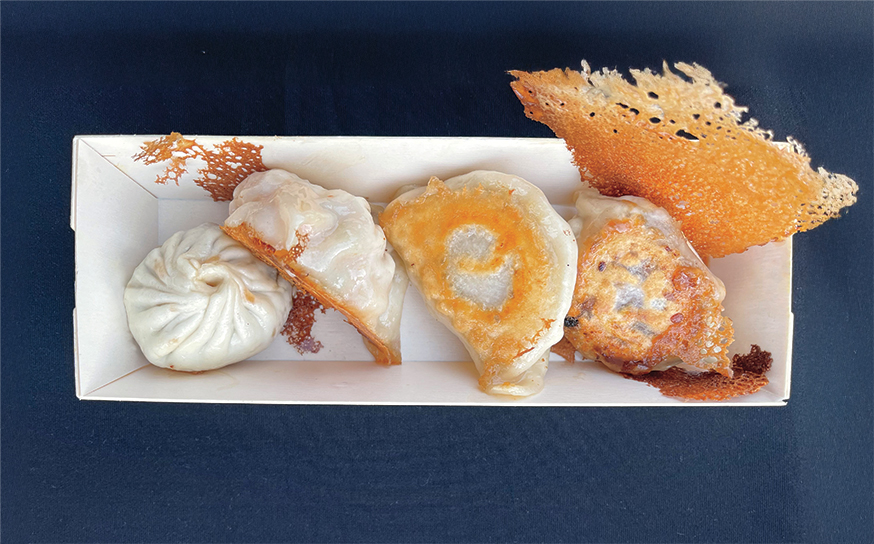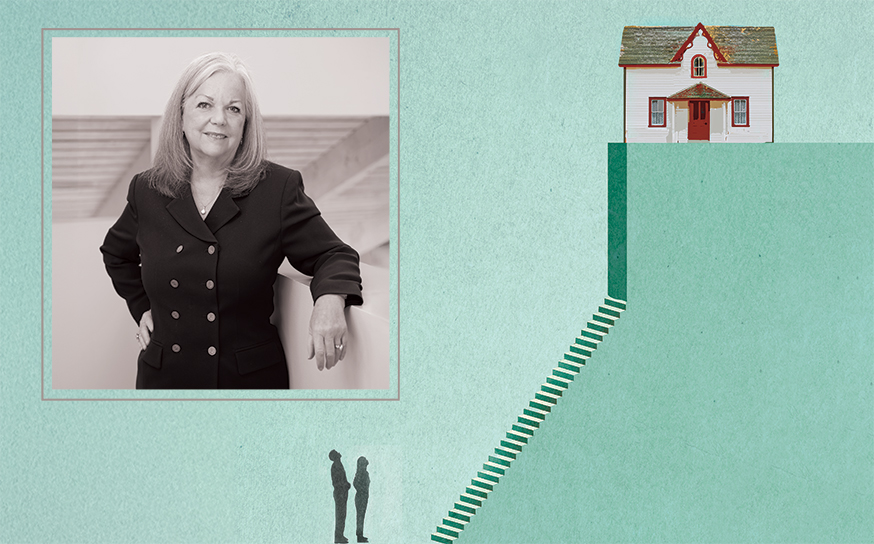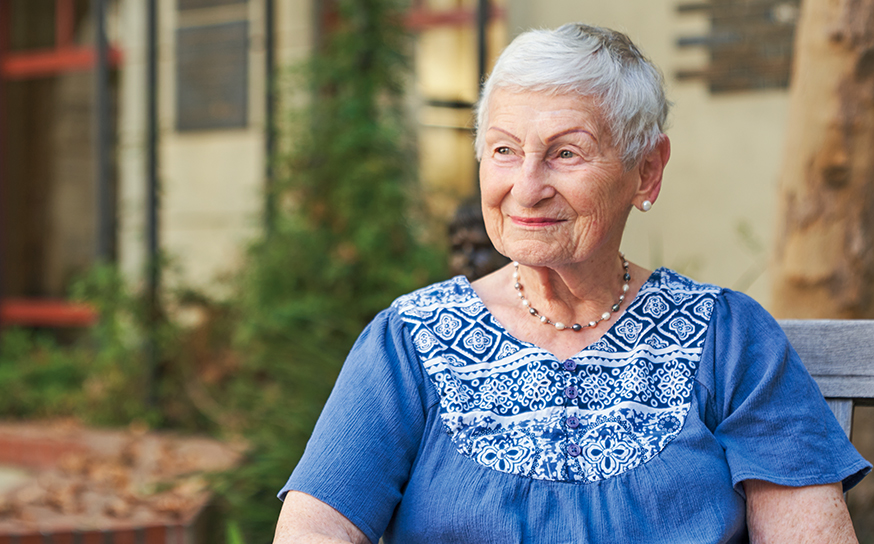A Second Generation Chef Takes over Anajak Thai in Sherman Oaks
It’s about more than family ties.
-
CategoryEat & Drink, People
-
Written byJean Trinh
-
AbovePhoto by Justin Pichetrungsi
It’s a scene on Tuesday nights in Anajak Thai’s dimly lit alley. A few wooden tables and ’90s R&B tunes fill the outdoor space of the 40-year-old Sherman Oaks mainstay. Chef-owner Justin Pichetrungsi serves his Thai-Mexican creations like tacos filled with grilled, dry-aged Pacifico striped bass and topped with chili crisp, lime and pickled shallots. Guest chefs join in on the fun and invent their own dishes to add to the menu.
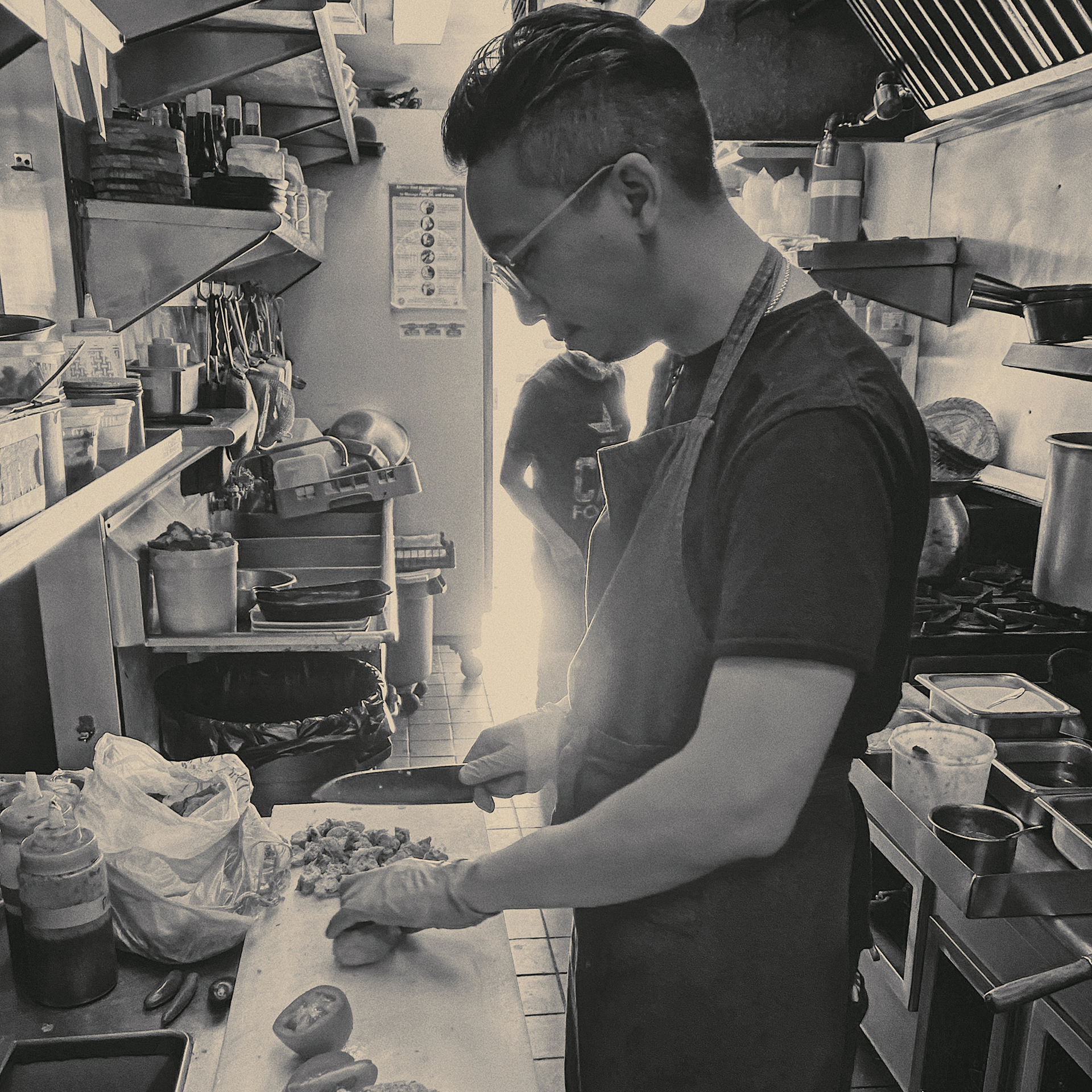
Photo by Eric Ng
“That’s the spirit of what great Thai food is—sort of a scrappy street mentality that you want to do something cool with what you have and not worry about its refinement,” says Justin, 34.
The second-generation owner introduced Thai Taco Tuesdays to the restaurant during the pandemic. As he describes it, the idea came out of boredom and an attempt to drum up business on a slower night. Tuesdays have since become Anajak Thai’s busiest day of the week.
Justin also gets to feed his artistic hunger through his 10-course Thai omakase dinners on weekends (which, after a hiatus, resume in July). One of the cornerstones of his project is featuring high-quality ingredients such as Peads & Barnetts pork, which he ages for 28 days. He gets his sugar snap pea tendrils from Santa Monica Farmers Market and blanches them in a pork and Wagyu beef broth: a palate cleanser. The chef creates a version of his father’s pat pong gari, a dry curry stir fry with milk and egg that’s usually made with crab; Justin’s version features Skull Island tiger prawns.
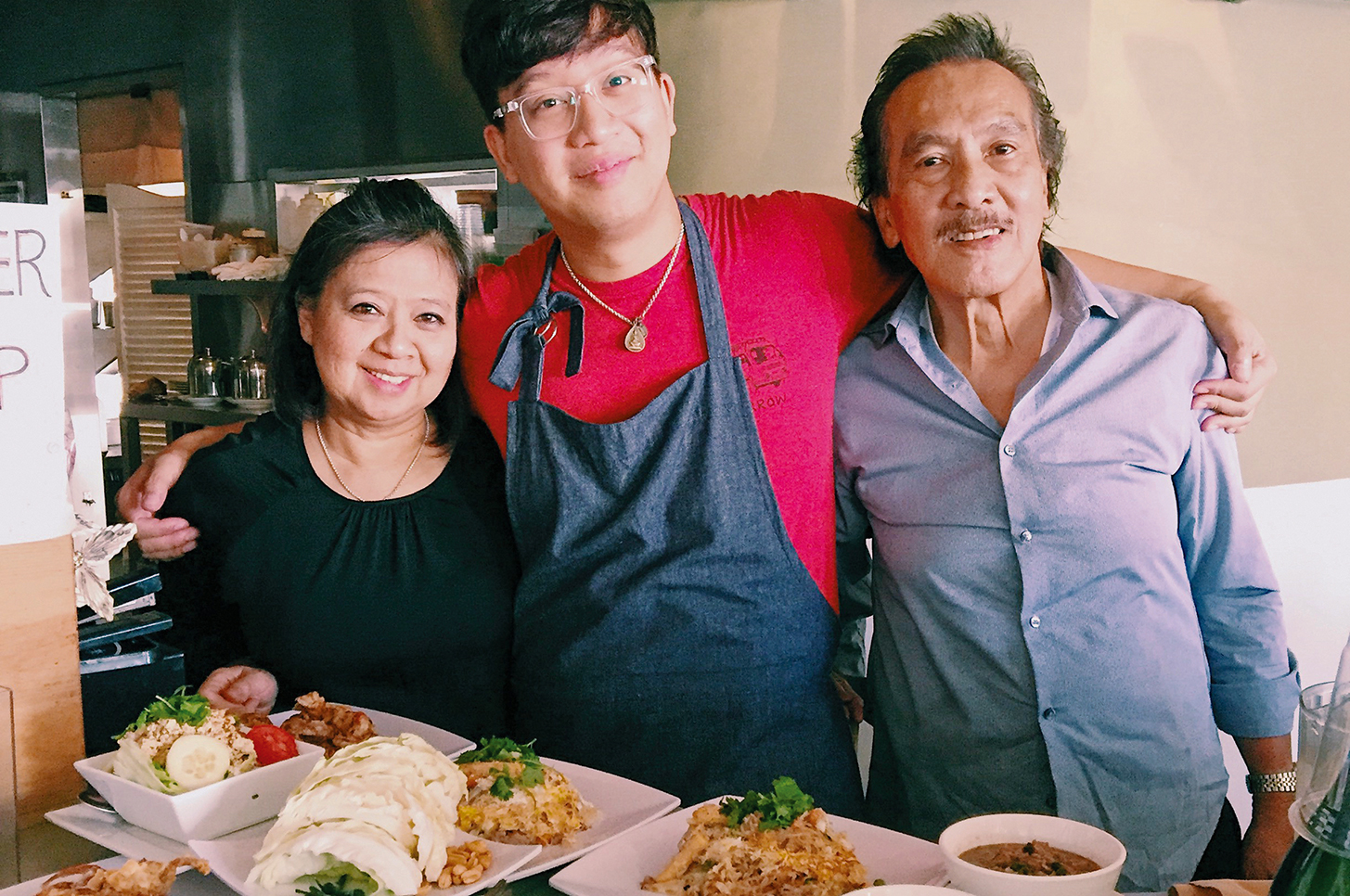
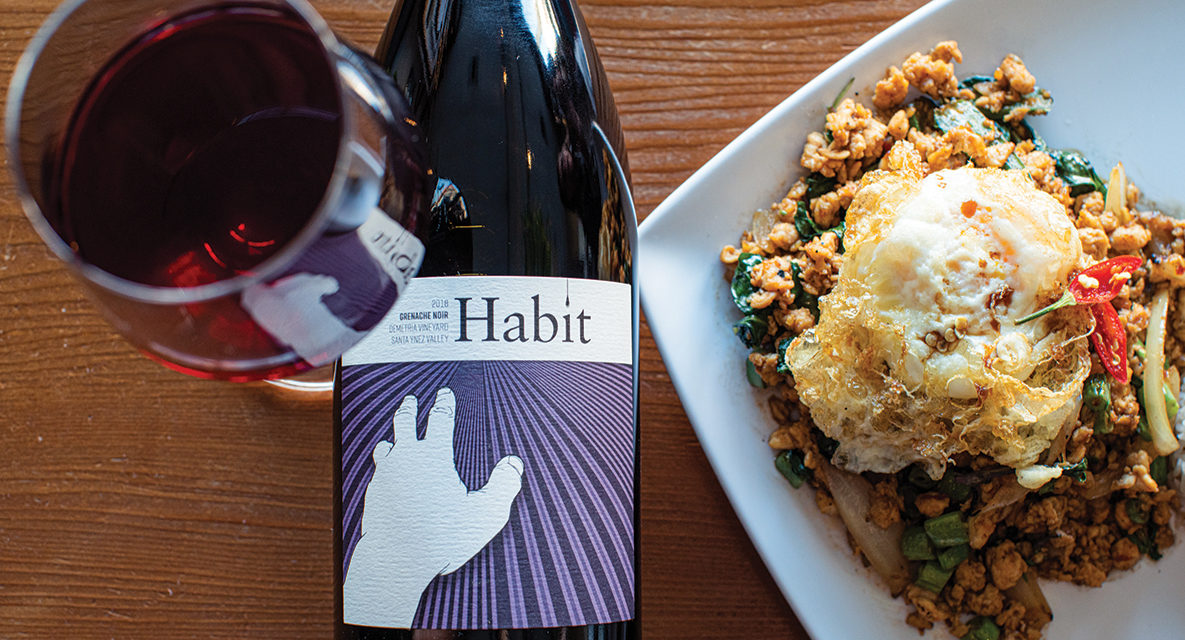
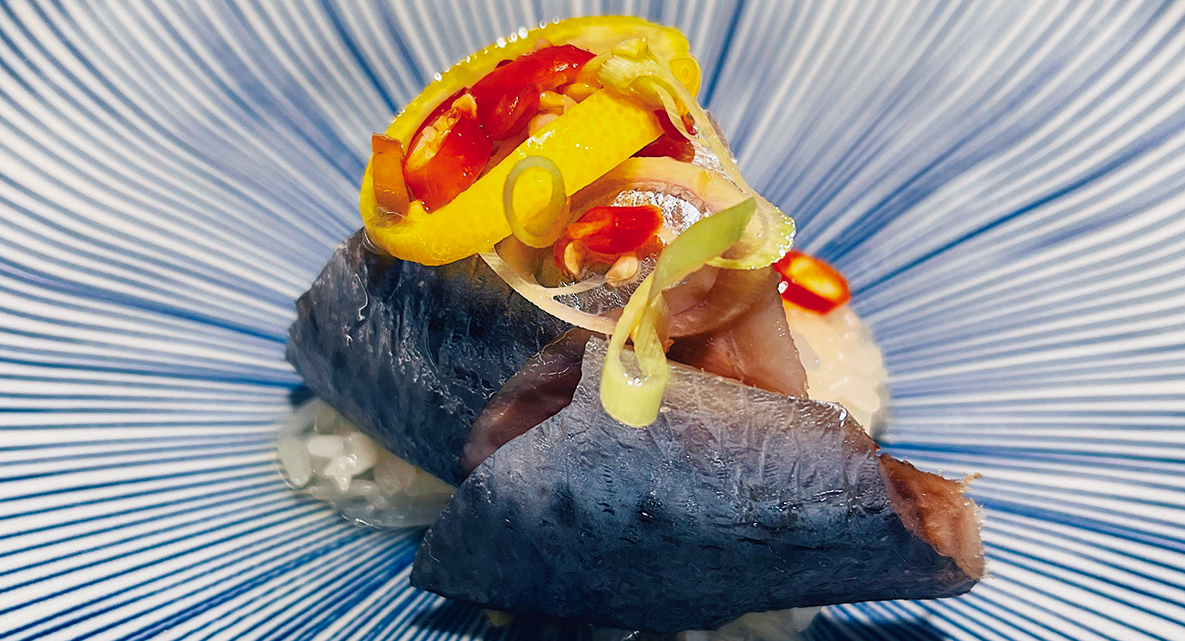
Above photos by Justin Pichetrungsi and Eric Ng (wine)
•••
Over the years, Justin has brought his passion for wines, especially of the natural variety, to the restaurant. He currently carries about 50 types of bottles, including a Cédric Bouchard champagne that he suggests pairing with his Southern Thai fried chicken, and a Hofgut Falkenstein dry riesling that’s best matched with spicier fare like a papaya salad.
Despite all of Justin’s moves toward modern dishes and wines, he hasn’t forgotten that Anajak Thai is a neighborhood spot. He keeps his longtime customers in mind. Favorites like pad thai and panang curry are staples on his regular menu, but he says he creates the best versions he can without any shortcuts.
“The transformation is really about bringing the previous generation of customers along with us as well, to make sure that they know that the place will change, because if it doesn’t change, then it dies,” Justin says.
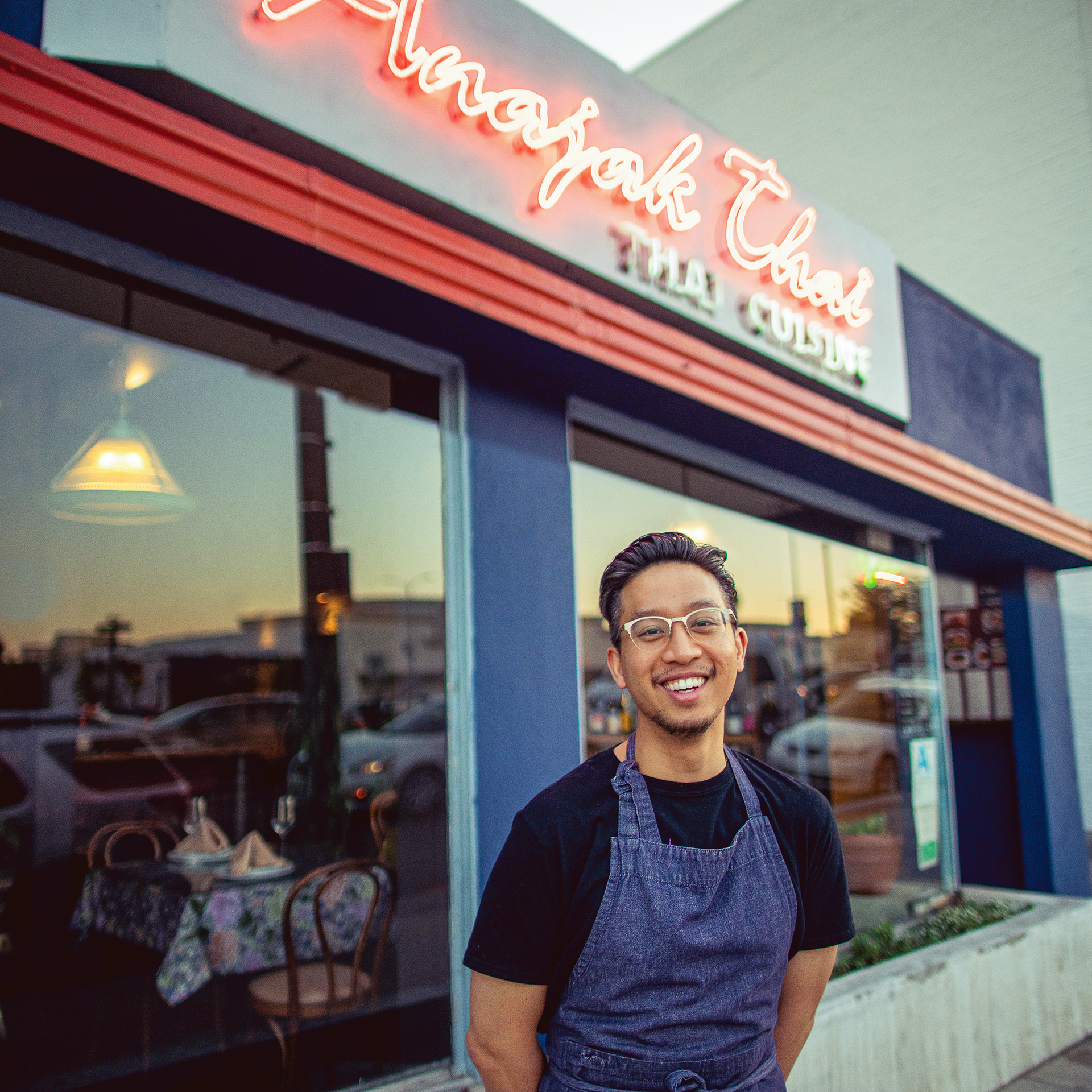
Photo by Eric Ng
He seems to be following in his father Rick Pichetrungsi’s footsteps: a tradition of resiliency, diligence and passion.
Rick, who immigrated from Thailand, worked as a sushi chef at nights and at Jack in the Box in the mornings before he launched Anajak Thai in 1981. It was one of the first Thai restaurants in the Valley, and at the time, had Chinese dishes like wonton soup and stir-fried noodles in the lineup. Justin says back then, Valley folks didn’t know Thai food. “I think people saw it as spicy Chinese food,” he posits.
Justin’s mother, Rattikorn Pichetrungsi, ran the front of the house, and his father cooked and visited the tables. He sees similarities between himself and his father. “I really am my father’s son (in that) he’s very romantic, a good host, always trying to please people, and good with recipes,” Justin says. “And I just think he’s an artisan.”
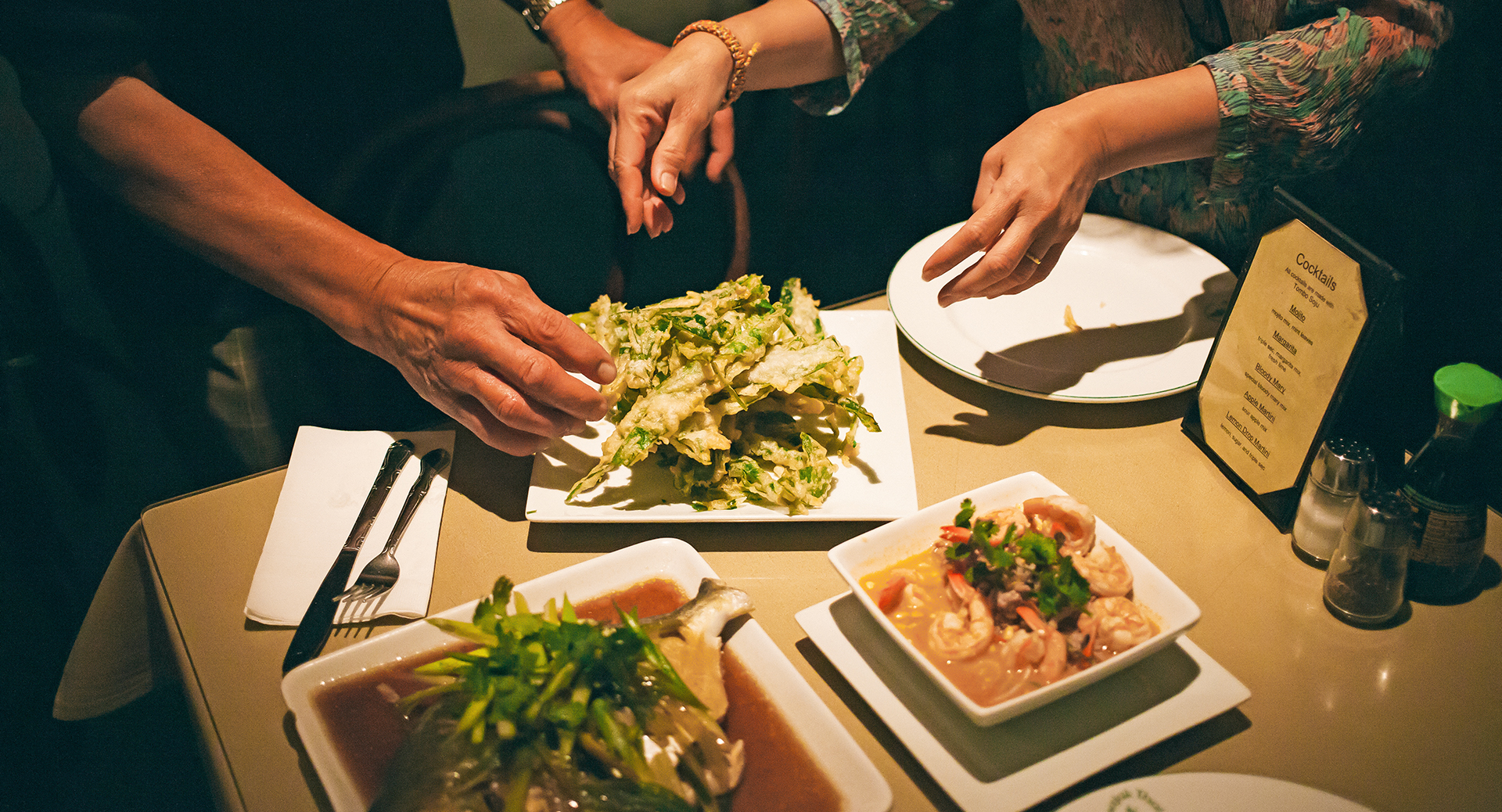
Above photo by Justin Pichetrungsi
•••
Justin has worked at the restaurant throughout his life. He started cooking his father’s recipes in high school and worked the front of the house. Simultaneously, he was studying to become an artist, and ended up with a decade-long career in the field. His last gig was as an art director at Walt Disney Imagineering.
But everything changed when Rick had a stroke in 2019. Justin left Disney and took over the reins of Anajak Thai. Even before his father’s hospitalization, Justin admits he had already been thinking about his parents’ mortality.
“I grew up seeing them have the restaurant at the height, and then also at its lowest point through the recession,” Justin recalls. “And that’s a hard thing to see, how much Mom and Dad were there working seven days a week during the recession just to make ends meet.”
Justin says his parents were able to weather the recession because of their resilient attitude to “stomach the challenging times” and in great part to their loyal customers. Some diners would come in once or twice a week just because they knew the family needed the boost. Their customers have also been doing the same during the pandemic.
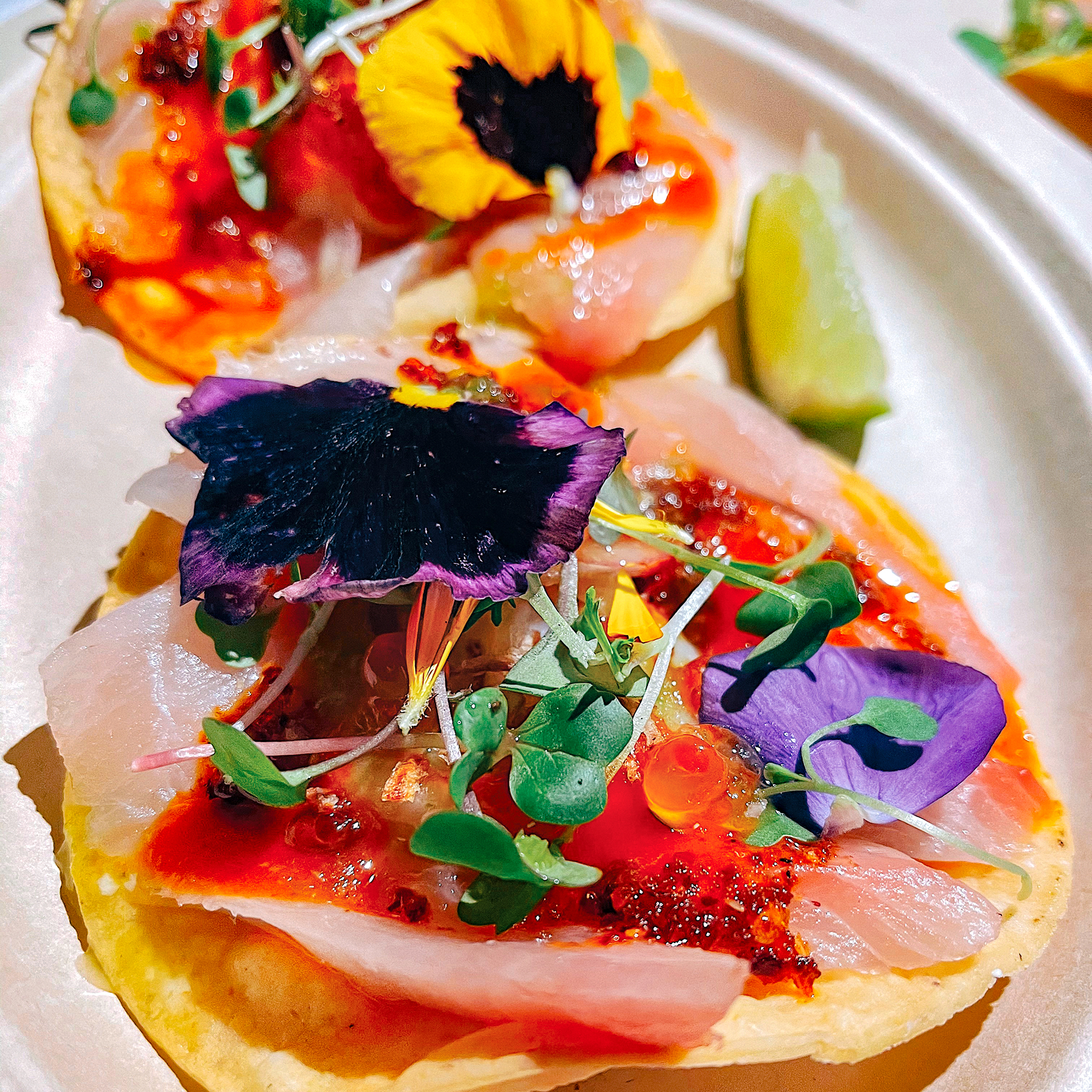
Photo by Justin Pichetrungsi
“The recession was darker in many ways because there wasn’t social media (like during the pandemic) to overcome the hump,” Justin says.
Over the last decade, Ventura Boulevard has seen an influx of new bars and restaurants, including Petit Trois, Sushi Note and Augustine. Justin’s not fazed by it; he’s actually excited about the energy the eateries are bringing to the neighborhood. Before that, the boulevard was dotted with chains like Marie Callender’s, Cold Stone Creamery and Jamba Juice. He’s seeing younger families move into the area now.
The evolution of Ventura Boulevard’s culinary scene is mirroring Anajak Thai’s shift as well.
“Restaurants aren’t museums, Justin says. “They’re galleries. “They change; there’s a rotation of things. The walls stay the same, but the artwork can change.”
Join the Valley Community






